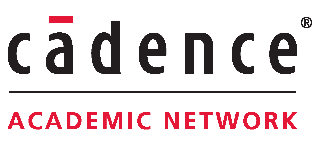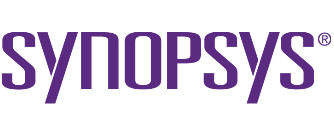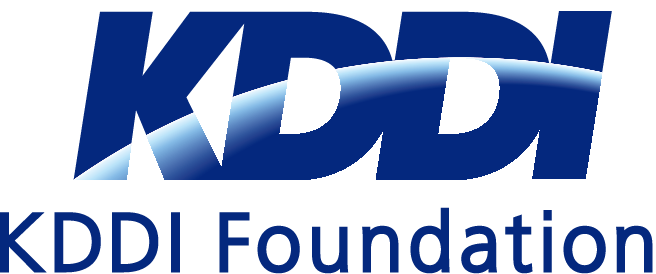ACM SIGDA Student Research Forum at ASP-DAC 2021 (SRF@ASP-DAC 2021)
Virtual Forum: January 10 to January 31, 2021
Virtual Live Session: 21:00 to 23:00, January 19, 2021 (JST = UTC+09)
SRF@ASP-DAC 2021 will be held as a virtual forum for the first time due to COVID-19. The forum is composed of 28 excellent posters from Asia, Europe and North America and 2 industry talks. The forum welcomes all students, professors and industrial professionals from the relevant research community. The forum is free of charge.
Forum Website: https://personal.ntu.edu.sg/liu/SRF@ASPDAC2021
Registration
- Student Presenter Registration: link
- Attendee Registration (including Supervisors and Co-authors of Accepted Posters): link
Forum Platform
- An Integrated Online Platform using Microsoft Teams (free registration is necessary to grant access): link
- Download the Microsoft Teams Software: link
Please refer to the forum website to get the most updated information.
Accepted Posters
| Poster ID | Title | Presenter | Affiliation |
| With Publication Track | |||
| 1 | Next Generation Design For Testability, Debug and Reliability Using Formal Techniques | Sebastian Huhn | University of Bremen |
| 2 | Design Space Exploration of Energy-Efficient Approximate Arithmetic Units for Error-Tolerant Applications | Haroon Waris | Nanjing University of Aeronautics and Astronautics |
| 3 | Efficient Post-Silicon Debug Framework for Network-on-Chip | Sidhartha Sankar Rout | Indraprastha Institute of Information Technology Delhi |
| 5 | Design Automation for Field-coupled Nanotechnologies | Marcel Walter | University of Bremen |
| 6 | Design and Analysis for Embedded Software with Limited Resources | Wei Zhang | The Hong Kong Polytechnic University |
| 7 | Enabling Low-Cost, High-Performance, Reliable Memory Extension System | Chun-Feng Wu | National Taiwan University |
| 8 | Reliable and Efficient Pre-Characterizing Techniques for Random Walk Based Capacitance Extraction | Ming Yang | Tsinghua University |
| 9 | Irregular Deep Data Embedding | Wei Li | The Chinese University of Hong Kong |
| 10 | Proving Correctness of Industrial Multipliers using Symbolic Computer Algebra | Alireza Mahzoon | University of Bremen |
| 11 | An Ultra-Low Energy Consumption Scheme for System Suspend to RAM | Wang Weilan | East China Normal University |
| 12 | A CNN Accelerator using Importance Map Guided Adaptive Activation Sparsification | Wenyu Sun | Tsinghua University |
| 13 | Ant Colony Optimization-Based Thermal-Aware Adaptive Routing Mechanism for Optical NoCs | Wang Jing | Shanghai Jiao Tong University |
| 14 | Real-Time Calculus: Revisit and Improvement | Yue Tang | The Hong Kong Polytechnic University |
| 15 | STICKER-T: An Energy Efficient Neural Network Processor Using Block-Circulant Algorithm and Unified Frequency-Domain Acceleration | Jinshan Yue | Tsinghua University |
| 17 | Fast and Lightweight Networks for Large-scale Computer Vision Applications on Terminal Devices | Yuan Cheng | Shanghai Jiao Tong University |
| 20 | Pearl: Performance-Aware Wear Leveling for Non-volatile FPGAs | Hao Zhang | Shandong University |
| 21 | Reliability-Aware Design of CNFET Circuits and Stochastic Circuits as Emerging Technologies in Post-Moore Era | Chen Wang | Shanghai Jiao Tong university |
| 22 | FPGA-accelerated Automatic Tomography Alignment | Shuang Wen | Peking University |
| 23 | Energy-Efficient Arithmetic Coding Scheme for Non-Volatile Memory Systems | Yi-Shen Chen | National Taiwan University |
| 24 | Robust and Energy-Efficient Deep Learning Systems | Muhammad Abdullah Hanif | Vienna University of Technology |
| 25 | Cross-Layer Optimizations for Resilient and Energy-Efficient Machine Learning Architectures | Alberto Marchisio | Technische Universität Wien |
| 26 | Hardware and Software Techniques for Securing Intelligent Cyber-Physical Systems | Faiq Khalid | Technische Universität Wien |
| 27 | Managing Thermal Integrity in Monolithic 3D Systems | Prachi Shukla | Boston University |
| 28 | Power Side-Channel Security Evaluation and Application in Cryptographic Hardware Design | Lu Zhang | Northwestern Polytechnical University |
| 29 | LongLiveNoC: Wear Levelling, Write Reduction and Selective VC allocation for Long lasting Dark Silicon aware NoC Interconnects | Khushboo Rani | Indian Institute of Technology Guwahati |
| 30 | Security Aware Architectural Exploration of Public Key Algorithm | Debapriya Basu Roy | Indian Institute of Technology Kharagpur |
| Without Publication Track | |||
| 4 | GWalloc: A Self-Adaptive Generational Wear-Aware Allocator for Non-Volatile Main Memory | Ziwei Wang | Wuhan University |
| 19 | Towards the Deterministic Modeling of DNN Inference Time on GPU | Weiguang Pang | Northeastern University |
Sponsors
ACM SIGDA

SIGDA is committed to advancing the skills and knowledge of electronic design automation professionals and students throughout the world. We do so in a variety of ways: sponsoring and organizing international workshops, symposia and conferences; leading the way in capturing archival electronic design automation publications; providing travel grants to sponsored workshops, symposia and conferences; pioneering the maintenance and distribution of electronic design automation benchmarks; hosting university and government researchers for software demonstrations at the University Research Demonstration at DAC; publishing the SIGDA Newsletter; maintaining a World Wide Web access site on Internet; creating the webinar series SIGDA LIVE, and initiating the new ACM Transactions on Design Automation of Electronic Systems.
Learn more at https://www.sigda.org/.
Cadence Design Systems, Inc.

Cadence is the industry sponsor of the SIGDA Student Research Forum at ASP-DAC 2021. Cadence is a pivotal leader in electronic design, building upon more than 30 years of computational software expertise. The company applies its underlying Intelligent System Design strategy to deliver software, hardware and IP that turn design concepts into reality. Cadence customers are the world’s most innovative companies, delivering extraordinary electronic products from chips to boards to systems for the most dynamic market applications including consumer, hyperscale computing, 5G communications, automotive, aerospace, industrial and healthcare. For six years in a row, Fortune magazine has named Cadence one of the 100 Best Companies to Work For!
Join us at the SIGDA Student Research Forum on January 19, 2021 to learn more about Cadence, and network with industry experts and Cadence executives.
Synopsys, Inc.

Synopsys, Inc. is the Silicon to Software™ partner for innovative companies developing the electronic products and software applications we rely on every day. As the world’s 15th largest software company, Synopsys has a long history of being a global leader in electronic design automation (EDA) and semiconductor IP and is also growing its leadership in software security and quality solutions. Whether you’re a system-on-chip (SoC) designer creating advanced semiconductors, or a software developer writing applications that require the highest security and quality, Synopsys has the solutions needed to deliver innovative, high-quality, secure products.
Synopsys technology is at the heart of innovations that are changing the way we work and play. Autonomous vehicles. Artificial intelligence. The cloud. 5G. These breakthroughs are ushering in the era of Smart Everything―where devices are getting smarter, everything’s connected, and everything must be secure.
Join Synopsys to innovate Smart Everything! Learn more at www.synopsys.com.
Call for Submission:
SIGDA Student Research Forum at ASP-DAC 2021 (SRF@ASP-DAC 2021)
The Student Research Forum at the ASP-DAC is renovated from a traditional poster session hosted by ACM SIGDA for PhD students to present and discuss their dissertations with experts in the design automation community. Starting from 2015, the forum includes both PhD and MS students, offering great opportunity for the students to establish contacts for their future career. In addition, the forum helps the companies and academic institutes to get an overview of the latest research and discover the extraordinary candidates for their employment.
Considering ASP-DAC 2021 is going virtual due to COVID-19, SRF@ASP-DAC 2021 will be held as a virtual forum. The forum welcomes all students, professors and industrial professionals from the relevant research community. To encourage PhD students participating in important EDA events, this year, the forum will offer a free registration to the ASP-DAC 2021 conference at the student rate for each accepted submission.
ELIGIBILITY
- Students must be within 1 year (M.S.) or 2 years (Ph.D.) of dissertation completion or have completed their dissertation during the last 12 months.
- Dissertation topic must be relevant to the ASP-DAC community.
- Previous ASP-DAC forum presenters are not eligible.
- Students who have presented previously at DAC/DATE PhD forums are eligible.
- Only students with at least one published or accepted conference, symposium or journal “full” paper are eligible for awards.
- Students must attend the forum virtually to present the poster in person without substitute presentations, or else please contact the SRF Chair in advance.
SUBMISSION REQUIREMENTS
A two-page PDF abstract of the dissertation (in two-column format, using 10pt. fonts and single-spaced lines), including name, institution, adviser, contact information, estimated (or actual) graduation date, whether the work has been presented at DAC PhD Forum or DATE PhD Forum, as well as figures and bibliography (if applicable). The two-page limit on the abstract will be strictly enforced: any material beyond the second page will be ignored by the reviewers. Each accepted abstract has to prepare a poster and a short video presentation, and the student has to attend the forum virtually for real-time interactions.
To be considered for awards, a student must explicitly indicate, in the title of the two-page abstract, the venues for which the work was published or accepted, and a list of all papers authored or co-authored by the student should be included in the bibliography of the two-page abstract. The papers must be related to the dissertation topic. Those on topics unrelated to the dissertation abstract will not be considered.
Submission website: https://easychair.org/conferences/?conf=aspdacsrf2021
IMPORTANT DATES
Submission Deadline: November 30, 2020 (firm)
Date of Acceptance Notification: December 14, 2020
Poster and Short Video Submission Deadline: January 5, 2021
Forum Date: January 19, 2021
Organizers
- Chair:
- Weichen Liu, Nanyang Technological University, Singapore
- Co-Chairs:
- Lei Jiang, Indiana University Bloomington, US
- Yaoyao Ye, Shanghai Jiao Tong University, China
- Secretariat:
- Jun Zhou, Nanyang Technological University, Singapore
- Technical Committee:
- Hiromitsu Awano, Kyoto University, Japan
- Donkyu Baek, Chungbuk National University, Korea
- Ateet Bhalla, Independent Technology Consultant, India
- Yuan-Hao Chang, Academia Sinica, Taiwan
- Wanli Chang, University of York, UK
- Xianzhang Chen, Chongqing University, China
- Yi-Jung Chen, National Chi Nan University, Taiwan
- Xiang Chen, George Mason University, US
- Haibao Chen, Shanghai Jiao Tong University, China
- Sudipta Chattopadhyay, Singapore Univ. of Technology and Design, Singapore
- Hsiang-Yun Cheng, Academia Sinica, Taiwan
- Luan Huu Kinh Duong, Nanyang Technological University, Singapore
- Shao-Yun Fang, National Taiwan University of Science and Technology, Taiwan
- Ann Gordon-Ross, University of Florida, US
- Chien-Chung Ho, National Chung Cheng University, Taiwan
- Weiwen Jiang, University of Notre Dame, US
- Yukihide Kohira, The University of Aizu, Japan
- Hyung-Gyu Lee, Daegu University, Korea
- Sicheng Li, Hewlett Packard Labs, US
- Yongfu Li, Shanghai Jiao Tong University, China
- Qingan Li, Wuhan University, China
- Chun-Han Lin, National Taiwan Normal University, Taiwan
- Ren-Shuo Liu, National Tsing Hua University, Taiwan
- Jaehyun Park, University of Ulsan, Korea
- Muhammad Shafique, New York University Abu Dhabi, UAE
- Liang Shi, East China Normal University, China
- Donghwa Shin, Soongsil University, Korea
- Masashi Tawada, Waseda University, Japan
- Hoeseok Yang, Ajou University, Korea
- Ming-Chang Yang, The Chinese University of Hong Kong, China
- Lei Yang, University of New Mexico, US
- Bei Yu, The Chinese University of Hong Kong, China
- Qian Zhang, University of California, Los Angeles, US
- ASP-DAC liaison:
- Masashi Tawada, Waseda University, Japan
- Yukio Mitsuyama, Kochi University of Technology, Japan
CONTACT INFORMATION
For queries, please send an e-mail to Prof. Weichen Liu (liu [at] ntu.edu.sg). Please include "SRF@ASP-DAC 2021" in the subject of your email.








